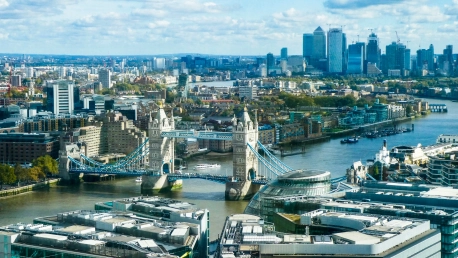In a fluctuating international landscape, David Lammy, the UK Labour Party’s Shadow Foreign Secretary, introduces a strategy termed “progressive realism” to reshape British foreign policy. This concept seeks to balance the UK’s redefined global role with its enduring capabilities. Lammy envisages a pivot in diplomatic tactics, fostering a Britain that would proactively address global challenges while capitalizing on its historical influence and modern capacities. Progressive realism marks a paradigm shift, critiquing existing foreign relations approaches and charting a forward-thinking path for the UK to exert constructive leadership on the world stage. With an eye to the future, the framework aims to reconcile realism with progression, positioning the UK as a pivotal player in navigating the complex geopolitical tides of the present era.
Assessing Britain’s Global Position
The world has witnessed a seismic shift in the balance of power, and with it, Britain’s role has undeniably evolved. David Lammy urges a candid national self-appraisal, calling for a break from the shackles of imperial nostalgia to a practical embrace of the UK’s enduring capacities. The Labour Party’s proposition turns to the nation’s vibrant economy, world-renowned academic institutions, pioneering legal expertise, and a credible legacy of diplomatic endeavors. Through this lens, Lammy posits that while the UK may have faced military and economic setbacks under recent governments, it still holds the keys to influencing international relations and policies that only need to be recognized and utilized effectively in this new world order.Progressive realism is about combining recognition of these realities with ambition. Lammy’s approach looks to redefine Britain’s global engagement, capitalizing on its strengths and overcoming setbacks by laying out a path that adheres to the principles of both pragmatism and integrity.
Drawing From Labour’s Historical Foreign Policy
Lammy invokes the spirit of past Labour foreign policy stalwarts, like Ernest Bevin and Robin Cook, to construct the brickwork for his progressive realism doctrine. From Bevin’s pragmatic establishment of Britain’s post-war scenario – including NATO’s foundational years – to Cook’s ethical foreign policy which sought to place human rights and democracy at its core, Lammy finds a congruent line of thought. He stresses the UK’s foreign policy needs a balance between the hard-headedness of realpolitik and a visionary commitment to progressive ethics, social justice, and climate action.This historical grounding serves as a reminder of the successful legacies from which contemporary Labour foreign policy can draw. It underscores the need for a balanced approach that marries the lessons of the past with the demands of the present, creating a robust framework capable of addressing and leading in a complex, interdependent global landscape.
A New Partnership with Europe
The evolving dynamics post-Brexit have prompted a reevaluation of Britain’s bonds with the European Union. Progressive realism, as envisioned by Lammy, calls for a strategic overhaul, one that rebuilds and reinforces partnerships based on shared values, mutual interests, and collective security. Recognition of Europe’s role as an indispensable ally illustrates the need for collaboration on pressing concerns such as economic recovery, climate change, and regional stability.This partnership strategy serves as a crucial pivot point for Lammy’s foreign policy. It represents a commitment to move beyond the divisions sown by Brexit and to enter a new phase of cooperative relationships with European neighbors. Such an integrative approach is seen as pivotal to a renewed UK foreign policy framework capable of achieving constructive international outcomes.
Support for Ukraine and Defense Spending
Amidst the backdrop of the Russian invasion of Ukraine, Lammy’s model of progressive realism calls for unequivocal support for Ukraine and increased investment in the UK’s defense sector. This stance not only reflects solidarity with a nation under siege but also signals recognition of the evolving threats to national and European security. A commitment to defense spending underscores the need to ensure domestic safety and to contribute to international peacekeeping efforts.The Labour Party’s determination to back Ukraine and enhance military readiness is exemplified by policy propositions that aim to maintain the forceful deterrence required in today’s geopolitical climate. Such measures are fundamental to sustaining Britain’s sovereignty and upholding its responsibilities as a global actor committed to preserving stability and combating aggression.
Middle East Policy and Climate Change
In addressing the long-standing crisis in the Middle East, Lammy highlights the necessity for a two-state solution and the official recognition of Palestine. This aspect of policy extends the concept of progressive realism into the realm of international justice and the drive toward conflict resolution. Alongside this, the fight against climate change is deemed the defining challenge of our era, and the Labour Party proposes a coalescing of global efforts by forming clean power alliances and fostering an industrial shift toward sustainability.The convergence of realistic strategies and progressive ideals in these areas demonstrates the Labour Party’s embrace of pioneering solutions to contemporary challenges. Whether by advancing diplomatic efforts for peace or marshaling resources against the existential threat of climate change, Lammy’s policy blueprint underscores the UK’s potential to lead transformational global efforts informed by both realism and progressive change.









